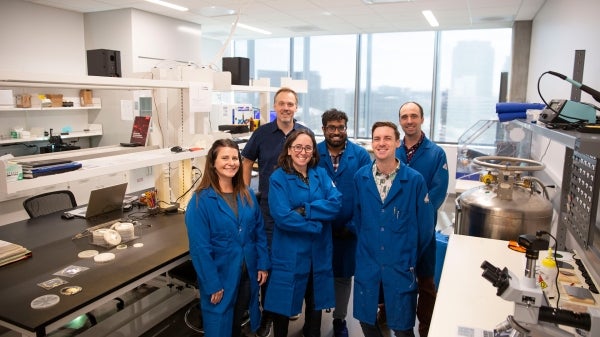Translating addiction, mental health research for the Chinese American population

Jinni Su, an assistant professor in the ASU Department of Psychology, knows the importance of scientific research in the fight against addiction, mental health problems and substance abuse. Photo courtesy the ASU Department of Psychology
Jinni Su, an assistant professor in Arizona State University's Department of Psychology, knows the importance of scientific research in the fight against addiction, mental health problems and substance abuse. She conducts research on alcohol abuse within marginalized populations, with recent findings highlighting the link between racial discrimination and drinking, the protective role of personality and problem drinking, and the importance of parents during the transition to college during the pandemic.
Su, a developmental psychologist with training in human development and statistical/molecular genetics, recently gave a presentation on behalf of the Wellness, Advocacy, Voices, Education and Support (WAVES) initiative from the organization United Chinese Americans. She spoke in Chinese about alcohol use, mental health and supporting adolescent Chinese Americans.
“I study adolescent and young adult mental health and alcohol use-related problems. I try to understand the risk and protective factors that influence mental health and alcohol use-related problems,” said Su. “One of my focuses is trying to understand these processes within racial and ethnic minority populations, because they face their own unique challenges and they are relatively underrepresented in research.”
Drinking as a coping mechanism for issues like the increased stress from the pandemic, inflation or to cope with discrimination can lead to long-term challenges. Over 3,500 people died from alcohol-related causes in Arizona in 2022, and 60% of those cases came from issues related to chronic overuse of alcohol, such as Alcohol Use Disorder.
“My dream is, of course, to have my work be impactful and to be a change leader to inform practices, prevention and education programs that can actually help serve the people,” said Su.
Over 305,851 Asian American/Pacific Islanders live in Maricopa County, and the population has experienced a growth rate of 138% since 2000. Many of them speak English as a second language, and so speaking about research in Chinese makes a difference in connecting with the community and preventing problems such as adolescent alcohol abuse.
According to the UCA WAVES, many Chinese American adolescents suffer mental health challenges in silence due to the stigma associated with seeking out treatment and may turn to alternative methods for coping with the challenges of bilingualism or discrimination.
“It's really special to me that I have the opportunity to engage with people who are working on the front line of the WAVES program — a program that is interacting with my community members and serving them,” said Su, adding, “I hope I can get more and more involved and be able to contribute to promoting the mental health of Chinese American adolescents.”
Video courtesy the ASU Department of Psychology
Related: ASU launches first online master’s degree in addiction psychology with in-person practicum
More Science and technology

ASU professor honored with prestigious award for being a cybersecurity trailblazer
At first, he thought it was a drill.On Sept. 11, 2001, Gail-Joon Ahn sat in a conference room in Fort Meade, Maryland.…

Training stellar students to secure semiconductors
In the wetlands of King’s Bay, Georgia, the sail of a nuclear-powered Trident II Submarine laden with sophisticated computer…

ASU startup Crystal Sonic wins Natcast pitch competition
Crystal Sonic, an Arizona State University startup, won first place and $25,000 at the 2024 Natcast Startup Pitch Competition at…